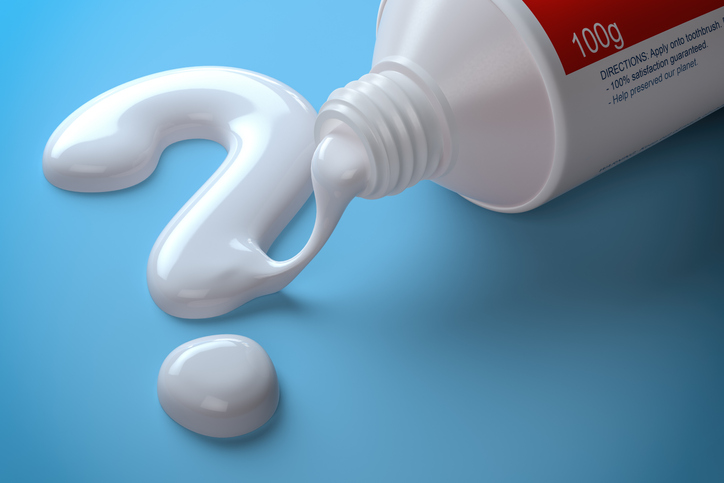
Although just less than 1% of the population has a contact allergy to toothpaste, you should still know the signs of an allergic reaction.
With countless varieties of toothpaste on the market today, finding the right one can be tough. After all, you’ll want to take into account the flavor, brand, type, list of active ingredients, and care specifications associated with each toothpaste to find the right fit for you. Additionally, between 0.1 and 0.3% of the population has a contact allergy to toothpaste, and although this number is relatively small, you’ll still want to know the signs of an allergic reaction.
Potential Allergens In Toothpaste
In most cases, a specific ingredient is responsible for toothpaste allergies. Fluoride, flavoring agents, gluten, fragrances, and cinnamic aldehyde can all cause allergic reactions.
Of course, your toothpaste isn’t the only possible culprit. Chewing gums, lipsticks, mouthwash, foods from the Toxicodendron family, and metals used in dentistry (such as nickel, chromium, gold, or beryllium) may also be to blame for contact dermatitis.
Signs Of An Allergic Reaction
Most people who react negatively to toothpaste are experiencing allergic contact dermatitis. Toothpaste allergies are actually far less common because toothpaste is quickly rinsed out of the mouth as soon as brushing is completed.
If you’re having a reaction to your toothpaste, you may notice a rash around your mouth, swollen gums, or an itchy or burning sensation in your mouth. Tongue irritation, mouth sores, and drying, cracking, or peeling lips are other common signs.
Although these reactions to toothpaste can be uncomfortable, most toothpaste allergies are harmless, and your symptoms will generally fade once you switch to another toothpaste.
What To Do When You’re Having An Allergic Reaction
The easiest and quickest way to treat a toothpaste allergy is to avoid the irritating chemical in the first place. If you notice any uncomfortable reactions to your toothpaste, trying a new brand or flavor of toothpaste will likely help your symptoms go away naturally. Once you have figured out which ingredient is responsible for your reaction, you can avoid picking a toothpaste that contains that ingredient to pre-empt any resulting uncomfortable symptoms in the future. With flavorless, natural, sensitive, and antimicrobial tubes of toothpaste on the market, you’ll be able to find one that works for you.
However, if your symptoms persist or worsen after switching, make sure to visit your dentist as soon as possible. Your dentist can determine if your symptoms are a sign of a more serious condition. Depending on the severity of your symptoms, they might also recommend rinsing with topical steroid mouthwashes, taking systemic corticosteroids, or using an over-the-counter topical steroid.
If you visit your doctor for a patch test, you can say goodbye to using a trial-and-error toothpaste-buying strategy to figure out exactly which ingredient is causing an allergic reaction. When diagnosing a toothpaste allergy, your doctor will place different chemicals on your back for around 48 hours and interpret results 48, 72, and 96 hours after placement. If you are allergic to any chemicals, your skin will blister, itch, swell, or redden at the site where the chemicals in question were applied.
Keeping Your Mouth Healthy With Espire
Don’t let a toothpaste allergy prevent you from thoroughly brushing twice a day! Brushing your teeth keeps them clean, removes plaque, and reduces your likelihood of developing cavities, decay, or other oral health issues.
If you’ve noticed any signs of an allergic reaction or have any questions about picking the right toothpaste, visit Espire’s Oklahoma City office. Our dentists can answer any questions you have and make sure your teeth and gums are in tip-top shape. Contact us today to set up an appointment!
